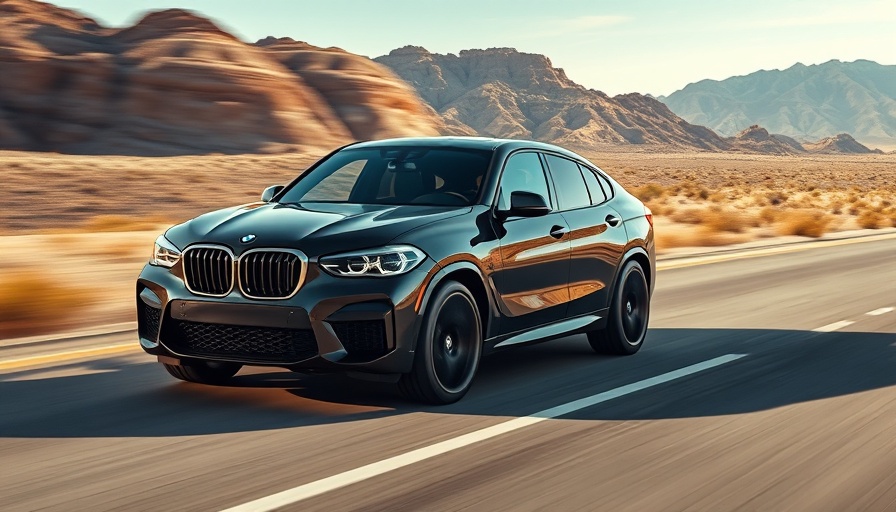
BMW XM Discounts: A Sign of Struggling Sales?
The automotive market often reveals the fortunes of manufacturers through sales figures and promotional offers. BMW has ignited curiosity and concern with its announcement of unprecedented discounts on the BMW XM, a flagship model that has not secured its place in the hearts of consumers. Offering total savings of up to $22,500 on the XM, the brand is showing a willingness to adapt in the face of disappointing sales stats and lukewarm reception for the hybrid SUV.
A Closer Look at the BMW XM's Market Performance
In 2024, BMW moved less than 2,000 XM units in the United States, while global sales stagnated at about 7,813—an alarming 25% lower than the niche BMW Z4 roadster. Given these figures, the extent of BMW's current promotion can be seen as a push to clear existing inventories and incentivize buyers. Potential buyers can benefit from a $5,000 rebate for switching from another car brand or for current BMW owners, combined with a substantial financing incentive. Such aggressive marketing tactics echo a larger trend in the automotive space, where electric and hybrid vehicles are increasingly making waves, forcing established brands to reconsider product offerings.
What Lies Ahead for the Hybrid Vehicle Market?
As the market dynamics shift, the consumer's appetite for hybrid vehicles is at a crucial juncture. With growing concerns for the environment, many manufacturers are opening up to the idea of providing low-emission vehicles. Yet, the mixed reviews on the aesthetic and performance of the XM indicate that merely offering a hybrid option might not be enough to entice buyers.
To enhance sales, BMW could invest in consumer education about the advantages of hybrid technology, aiming to dispel misconceptions surrounding these vehicles. As seen with the XM, consumers often compare performance directly with traditional gasoline models, which highlights the need for manufacturers to articulate the long-term benefits of hybrids like lower fuel costs and reduced environmental impact.
Understanding Consumer Preferences in the Luxury Segment
The luxury SUV market is crowded, and the likes of the BMW XM face stiff competition from rivals such as the Porsche Cayenne and the Mercedes-Benz GLE. Despite the appeal of luxury features and performance, buyers are increasingly valuing agility and aesthetics over pure horsepower. The criticism that the BMW XM is perceived as overweight and unattractive is paramount in understanding its sales struggles. If consumers feel that hybrid luxury SUVs do not meet their expectations for performance or style, price cuts alone may not suffice in swaying potential buyers.
The Price Point Dilemma
Even with impressive discounts bringing the price of an XM down to a more competitive range, the model's starting price of around $160,000 still presents a significant barrier. Enthusiasts and luxury vehicle buyers often weigh performance to price ratios heavily before making a purchase.
For example, the BMW X6 M, starting at $132,100, offers a more performance-oriented alternative with less weight and faster acceleration. The advantages in sportiness may give the X6 M an upper hand against the XM, driving buyers to reconsider their options despite substantial cash-back offers from BMW on its hybrid.
Conclusion: Is Now the Right Time to Purchase a BMW XM?
As BMW ramps up incentives to push the XM off dealership lots, potential buyers may find this an appealing opportunity to consider. Despite its challenges in the market, the unique features of the XM warrant a second look, particularly for those seeking a luxury hybrid vehicle. The price drops elevate the XM's placement within the price range of its more traditionally speedy counterparts. Therefore, for buyers contemplating a luxury SUV, the current offers could be the perfect nudge to take the plunge. Consumers who value sustainability along with luxury may soon find themselves at the wheel of BMW's polarizing hybrid offering.
 Add Row
Add Row  Add
Add 




 Add Row
Add Row  Add
Add 

Write A Comment